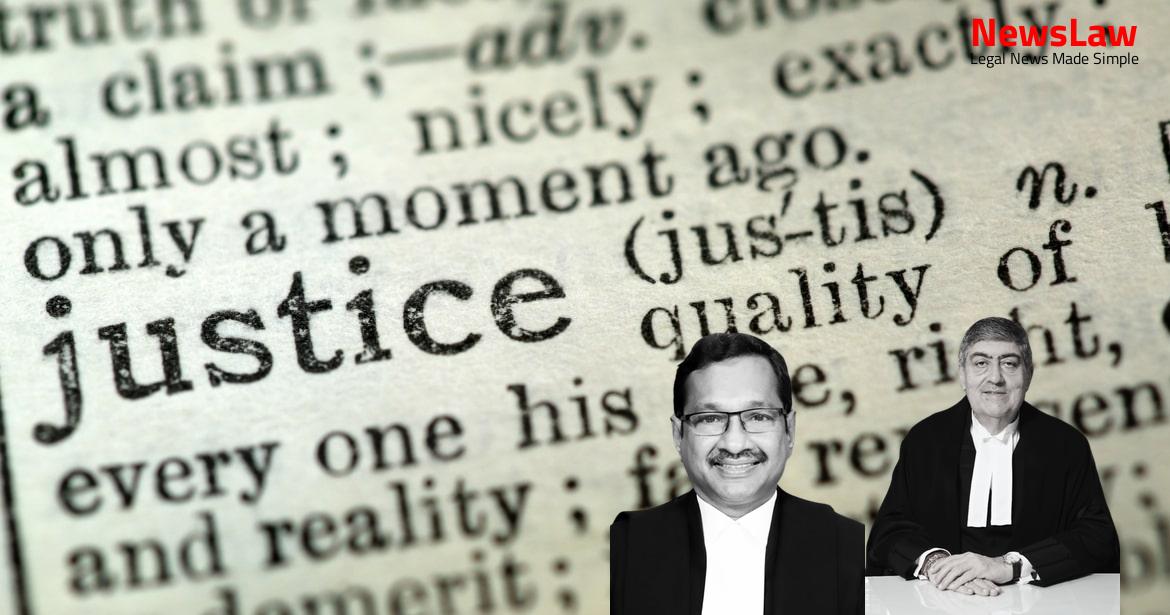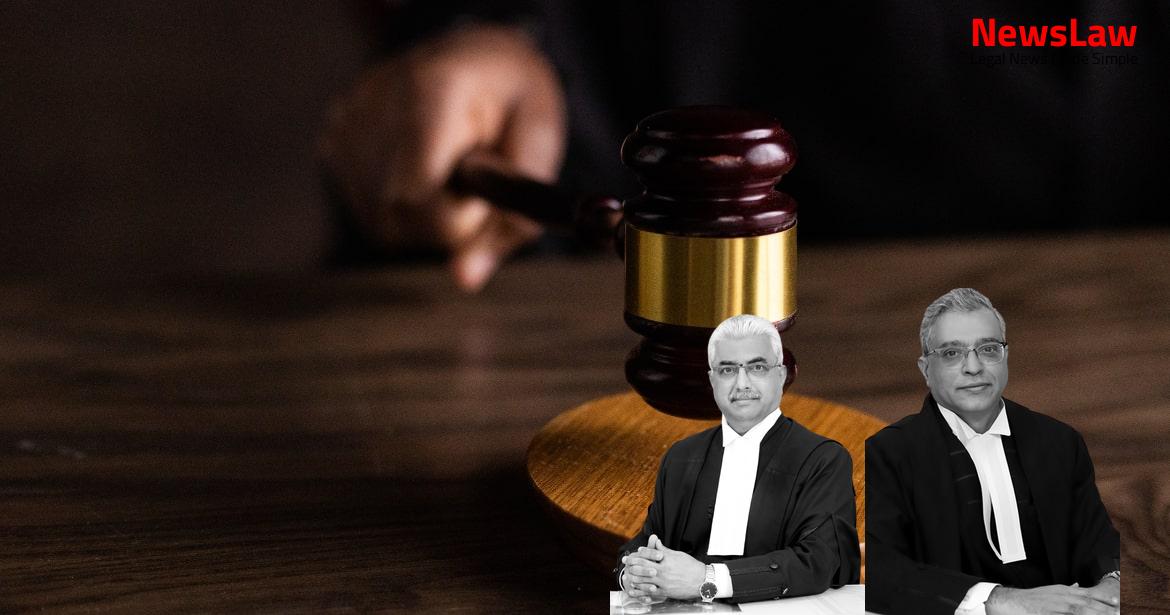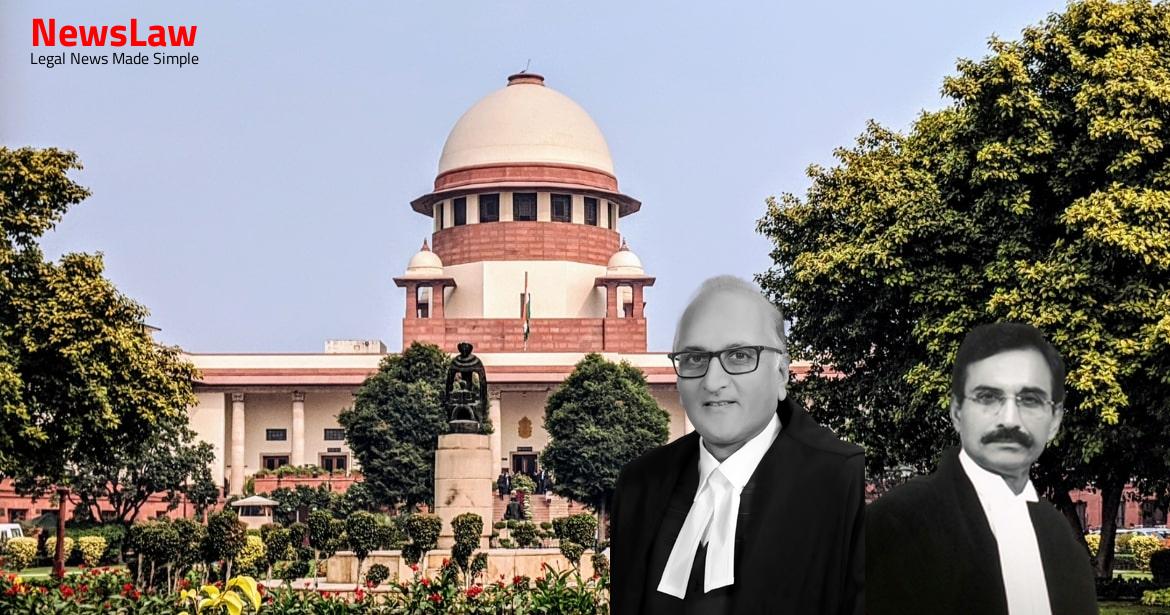Explore the detailed legal analysis conducted by the court regarding a suspension order in a Panchayati Raj Institution case. The focus is on the court’s interpretation of the relevant laws and precedents, shedding light on the nuances of the proceedings and the considerations that influenced the final decision.
Facts
- Offence of house trespass committed with intention to cause fatal injury through indiscriminate firing.
- Injuries caused on several parts of the body of the complainant.
- Appellant taken into custody after FIR registration.
- Preliminary enquiry initiated under relevant sections of Rajasthan Panchayati Raj Act.
- Charge sheet issued on 16.06.2021.
- Suspension of appellant pending enquiry on 16.06.2021.
- Charge sheet filed post investigation awaiting decision on framing charges by trial Court.
- Development Officer and Chief Executive Officer informed about the situation.
Also Read: Supreme Court Judgment on Single Till Mechanism for HRAB Calculation: A Comprehensive Analysis
Arguments
- The submission of learned counsel for the appellant is that the complainant, who is the son of the opponent that lost the elections to the appellant, is making this attempt against the appellant.
- Learned counsel for the appellant argues that the suspension order dated 16.06.2021 and the bail order indicate that there was no case established against the appellant.
- Counsel for the respondent referred to the trial Court’s order refusing bail, but the court considers this line of submission irrelevant to the current controversy.
- The grant of bail occurs after investigations are complete, and taking a bail order as a reason for no prima facie case would contradict this principle.
- The law prioritizes releasing individuals post-investigation completion unless they pose significant risks like engaging in further crimes or influencing witnesses.
- The critical aspect of the matter discussed next is Section 38 regarding removal and suspension.
Analysis
- Appellant is facing criminal proceedings in court for an offense involving moral turpitude.
- The court is considering appropriate directions based on this submission.
- This submission has influenced the decision-making process in the present case.
- The State Government has the power to remove a member of a Panchayati Raj Institution for specific reasons.
- The removal can be done after giving the member an opportunity to be heard and conducting the necessary inquiry.
- Reasons for removal include refusal to act, incapability of acting, misconduct, or disgraceful conduct.
- The State Government also has the authority to suspend a member against whom an inquiry has been initiated or who is facing criminal proceedings involving moral turpitude.
- The suspension order was based on a conduct attributed under Clause (1) of the FIR.
- The suspension order was not very well-worded.
- The judgment in Ajit Singh & Anr. v. Financial Commissioner and Secretary to Government and Anr. was distinguished as the formation of opinion of the Deputy Commissioner was found to be absent in that case.
- In cases of political rivalry, the process should not be allowed to be misused as there is no question of restitution to the aggrieved party post determination of his conduct.
- The respondent should conclude the proceedings on or before 30 April, 2022.
- The appellant must cooperate to avoid delays.
- The criminal case proceedings should not be a factor at this stage in determining the appellant’s conduct.
- The suspension cannot continue indefinitely, especially without awaiting any criminal proceedings.
- The action is based on the enquiry held by the concerned officer in pursuance to the FIR.
- It is necessary to bring an end to the proceedings under Section 38(1) of the Act at the earliest as the pleadings are complete.
Also Read: Selection and Appointment of Judicial Officers in Himachal Pradesh
Decision
- The appeal is disposed of with each party bearing their own costs
- The burden of proof lies with the respondent(s) to establish the charge against the appellant outside of the FIR registration
- The proceedings should follow principles different from criminal proceedings, focusing on establishing the charge rather than proving beyond reasonable doubt
- The suspension order will remain in effect only until April 30, 2022
Case Title: SARDAR MEENA Vs. THE STATE OF RAJASTHAN (2022 INSC 220)
Case Number: C.A. No.-001558-001558 / 2022



